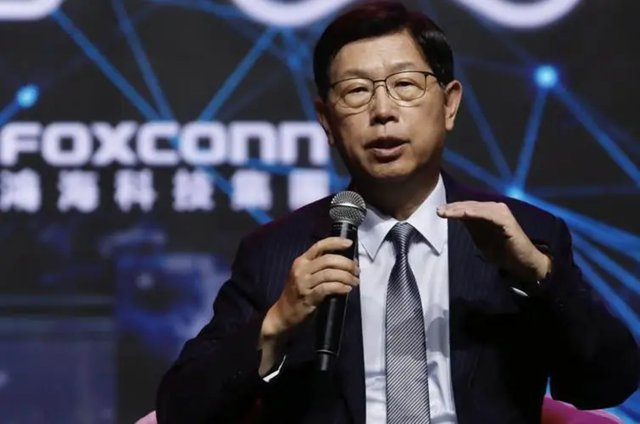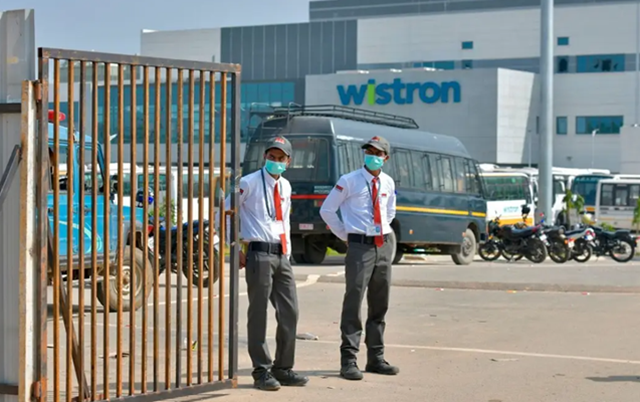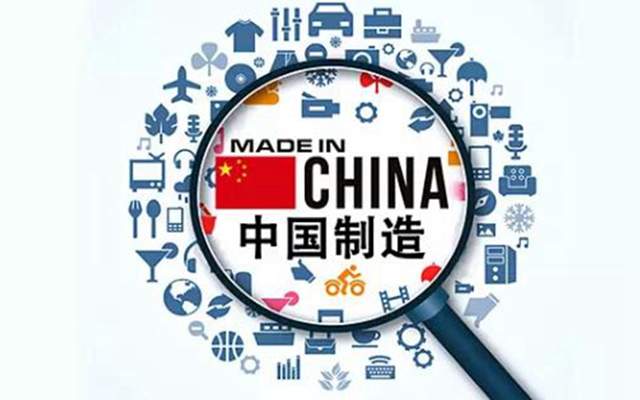Foxconn fights back, saying that "Made in India" products are of high quality and indistinguishable from 'Made in China', but Zhengzhou remains more important
![]() 08/26 2024
08/26 2024
![]() 498
498
In an interview, Foxconn Chairman Liu Yangwei stated that rumors circulating domestically claiming that the yield rate of iPhones manufactured in India is as low as 50% are completely false. If the quality of Indian manufacturing were that poor, Foxconn would have long since withdrawn from India. However, he also acknowledged that Zhengzhou Foxconn is the largest plant in Foxconn's network, employing up to 400,000 workers during peak periods.

Previously, domestic media reported that the yield rate of iPhones 15 manufactured in India was as low as 50%, and that E. coli levels exceeded standards, leading to the return of these devices from Europe. Chinese consumers naturally rejected these Indian-made iPhones 15, prompting Apple to declare that all iPhones 15 sold in the Chinese market are manufactured in China.
Drawing from last year's lessons, it is rumored that all iPhones 16 sold in the Chinese market this year will also be manufactured in China, to avoid a repeat of the situation where the launch of the iPhone 15 was overshadowed by issues with Indian-made versions. This underscores Apple's continued emphasis on the Chinese market, which is now the largest for iPhones globally.
However, Apple will also manufacture the iPhone 16 Pro in India this year, marking a further step beyond last year when only lower-end iPhone 15 and iPhone 15 Plus models were produced there. Foxconn's Indian factories naturally handle this production, as there is no confirmed news of Apple awarding orders to the Indian factory acquired by an Indian conglomerate, while the control of Pegatron's Indian factory is in negotiations for sale to the Tata Group, leaving the situation in flux.
Liu Yangwei's remarks undoubtedly serve to vindicate Foxconn's Indian factories, but it is also a fact that their development has been slow. Since establishing factories in India in 2019, Foxconn's Indian plants still only employ around 50,000 workers, whereas Zhengzhou Foxconn managed to build and staff a 300,000-worker facility within just two years. The two are not comparable.

While Liu Yangwei has vindicated Foxconn's Indian factories, the challenges remain. Indian workers cannot match the productivity and skill levels of their Chinese counterparts, who are willing to work overtime without complaint. Indian workers, on the other hand, frequently go on strike, hindering productivity gains.
For Foxconn, Indian conglomerates pose a significant threat. The Tata Group has acquired Wistron's Indian factory, effectively pushing Wistron out of the iPhone contract manufacturing business. In 2023, Apple awarded only 1% of iPhone 15 orders to Wistron, while Pegatron's Indian factory is in the midst of negotiations to sell control to the Tata Group, adding to the confusion. Foxconn fears that its Indian factories may also be acquired, a threat that has loomed over the company since last year. One of Foxconn's Indian factories, which used to produce smartphones for a Chinese company, has lost 70% of its orders to local Indian manufacturers this year.
This threat has prompted Foxconn to scale back its expansion plans in India from 70,000 to 50,000 workers. Conversely, the company has ramped up hiring in Zhengzhou, recruiting 50,000 workers in just two weeks, equal to the entire workforce of its Indian factories. This underscores the vast size of Zhengzhou Foxconn compared to its Indian counterparts, and Foxconn operates many other factories in mainland China, including those in Shenzhen and Chengdu.
Foxconn has also encountered setbacks in Vietnam, where the government has mandated a 30% reduction in electricity consumption for companies like Samsung and Foxconn. This led Samsung to shift significant smartphone orders to Chinese contract manufacturers, who produced over 40 million devices last year and are expected to increase production to 67 million this year. Foxconn, meanwhile, has shipped equipment from Vietnam back to China, reversing the earlier move to relocate production there. However, this return to Chinese manufacturing may not be seen in a positive light.

For Chinese manufacturing, Foxconn remains a vital player. For over a decade, Foxconn has been China's largest exporter, and several Taiwanese contract manufacturers rank among the top 20 Chinese exporters. This underscores the importance of contract manufacturing to the Chinese manufacturing sector, and the mutually beneficial relationship between the two.







